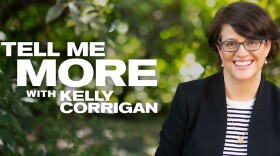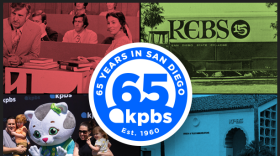
Lorie Hearn
Executive Director and Editor of inewsourceLorie Hearn is the executive director and editor of inewsource. She founded inewsource (formerly called the Watchdog Institute) in the summer of 2009, following a successful 35-year reporting and editing career in newspapers. She retired from The San Diego Union-Tribune, where she had been a reporter, Metro Editor and finally the senior editor for Metro and Watchdog Journalism. In addition to department oversight, Hearn personally managed a four-person watchdog team, composed of two data specialists and two investigative reporters. Hearn was a Nieman Foundation fellow at Harvard University in 1994-95. She focused on juvenile justice and drug control policy, a natural course to follow her years as a courts and legal affairs reporter at the San Diego Union and then the Union-Tribune. Hearn became Metro Editor in 1999 and oversaw regional and city news coverage, which included the city of San Diego’s financial debacle and near bankruptcy. Reporters and editors on Metro during her tenure were part of the Pulitzer Prize-winning stories that exposed Congressman Randy “Duke” Cunningham and led to his imprisonment. Hearn began her journalism career as a reporter for the Bucks County Courier Times, a small daily outside of Philadelphia, shortly after graduating from the University of Delaware in 1974. During the next two decades, she moved through countless beats at five newspapers on both coasts. High-profile coverage included the historic state Supreme Court election in 1986, when three sitting justices were ousted from the bench, and the 1992 execution of Robert Alton Harris. That gas chamber execution was the first time the death penalty was carried out in California in 25 years. In her nine years as Metro Editor at the Union-Tribune, Hearn made watchdog reporting a priority. Her reporters produced award-winning investigations covering large and small local governments. The depth and breadth of their public service work was most evident in coverage of the wildfires of 2003 and then 2007, when more than half a million people were evacuated from their homes. Contact Lorie at loriehearn@inewsource.org.
-
President Roosevelt's inaugural address filled the American people with confidence in their new leader. "They hear coming through their loudspeakers this voice so filled with courage, with self confidence, with a sense of leadership," says historian William Leuchtenburg.
-
Stream now with KPBS+ / Watch Saturday, Sept. 13, 2025 at 5 p.m. on KPBS 2. Kelly sits down with University of Pennsylvania Professor Angela Duckworth, Fulbright Scholar JerDrema Virginia Flynt and Harvard student Will McQuiston to discuss the factors that affect human behavior and the challenges associated with them. Context is especially important to consider in this digital age, as is the need for self-awareness and self-compassion.
-
In the season finale, Kelly sits down with University of Pennsylvania Professor Angela Duckworth, Fulbright Scholar JerDrema Virginia Flynt and Harvard student Will McQuiston to discuss the factors that affect human behavior and the challenges associated with them. Context is especially important to consider in this digital age, as is the need for self-awareness and self-compassion.
-
Kirk's death has forced his legions of young conservative followers to confront the question of how to sustain the movement that he built.
-
Stream with KPBS+ / Watch Friday, Sept. 12, 2025 at 8:30 p.m. and Saturday, Sept. 13, 2025 at 5:30 p.m. on KPBS TV + Saturday, Sept. 13 at 6:30 p.m. on KPBS 2 + Sunday, Sept. 14 at 10:30 a.m. on KPBS TV. This special retrospective features clips and interviews with KPBS reporters past and present telling the story of KPBS News from its earliest broadcasts to today. As San Diego's public media station celebrates its 65th birthday, we look back on the moments that shaped our newsroom look and forward to the future of trusted local journalism.
-
A Czech playwright introduced the word to English in the 1920s. But back then, it wasn't analogous to machinery. New interpretations of the robot reflect a modernity once skewered by the writer.
- County official overseeing animal shelters complained of 'shit dogs,' too few euthanasias in voice message
- San Diego City Council approves parking fees in Balboa Park
- A rivalry over $50 million meant to clean cross-border rivers is brewing
- City Council approves phased-in $25/hour minimum wage for hospitality workers
- Nathan Fletcher's accuser seeks restraining order against Lorena Gonzalez








